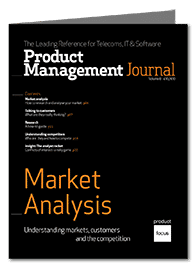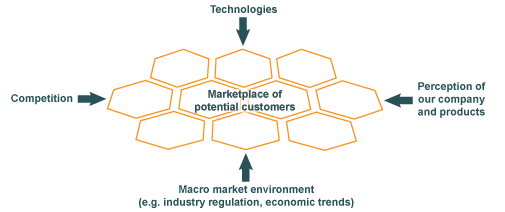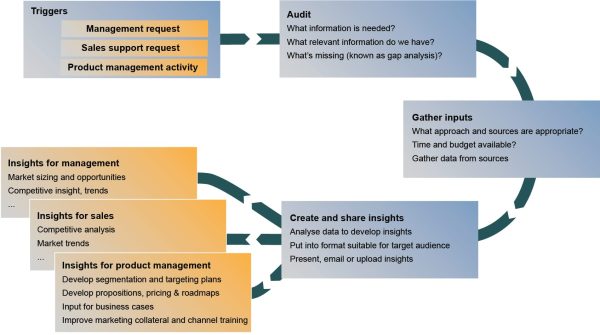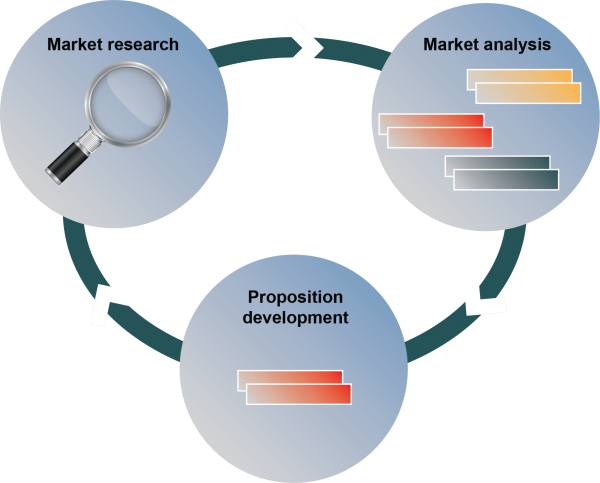What separates good product plans, product ideas, and business cases from ones that are doomed to failure?
Often the difference can be traced back to whether they were based on solid groundwork – researching the market, analyzing the options, and making the right decisions. This article looks at the overall market analysis process and where we fit as product managers and product marketers.
You can read all the articles in our Product Management Journal – Market Analysis by signing up for free here.
The scope of Market Analysis
Market Analysis is a broad topic that includes the worlds of market research and strategic analysis. The diagram below shows the 5 areas that need to be considered.
Understanding our competitors, markets, and how customers perceive our products is fundamental to market analysis. Other factors may only impact us from time to time but can still turn the market upside down, e.g., the introduction of new technologies like tablet computers or macro market changes such as the current economic recession.
When starting any market research, you will need to judge the focus you give to each of these areas according to the challenges you face with your product.
Strategic market analysis
Strategic market analysis looks at the big picture for a company and its markets. It’s an ongoing process of monitoring business unit success, reviewing product portfolios, identifying major new opportunities, and deciding where to invest resources. It drives new product innovation, take-over, and company strategy. Although we are impacted by the outcome, we’re not often involved in the activity.
Market Analysis triggers
The reality for many of us is that market analysis work gets triggered by some request.
These are specific questions that we or others have about our product and the market. For example, we’re developing a business case and need to get some data on market sizing and competitor pricing to validate our forecasts and assumptions.
However, we should really see these ad-hoc requests as part of an ongoing process of market research, analysis, and proposition development that helps develop our product strategy.
Building a product strategy
Product strategy is about working out what the right product is for the business. Market analysis is a critical component. It includes segmenting the market, deciding which customers to target, and providing the input needed to develop product propositions. It is important to think of this as an ongoing cycle of activity. As markets change and new competitors emerge, we need to evolve our product strategy.
What it means to us
In our roles as product managers and product marketers, we should either own or contribute to this work of research, analysis, and proposition development.
But it’s not easy. Our research options are always limited by time, and budget, and most of the decisions we make depend on an incomplete understanding of an evolving market. It can be tough to find the insights we need at the point we need them. That’s why it’s good to set up a way of drip-feeding market information into the business.
Conclusion
When you’re busy, there’s always a temptation to make decisions based on ‘gut feel’, but put the effort into market analysis and you’ll improve your decision making, have more successful products and be able to defend your decisions!





